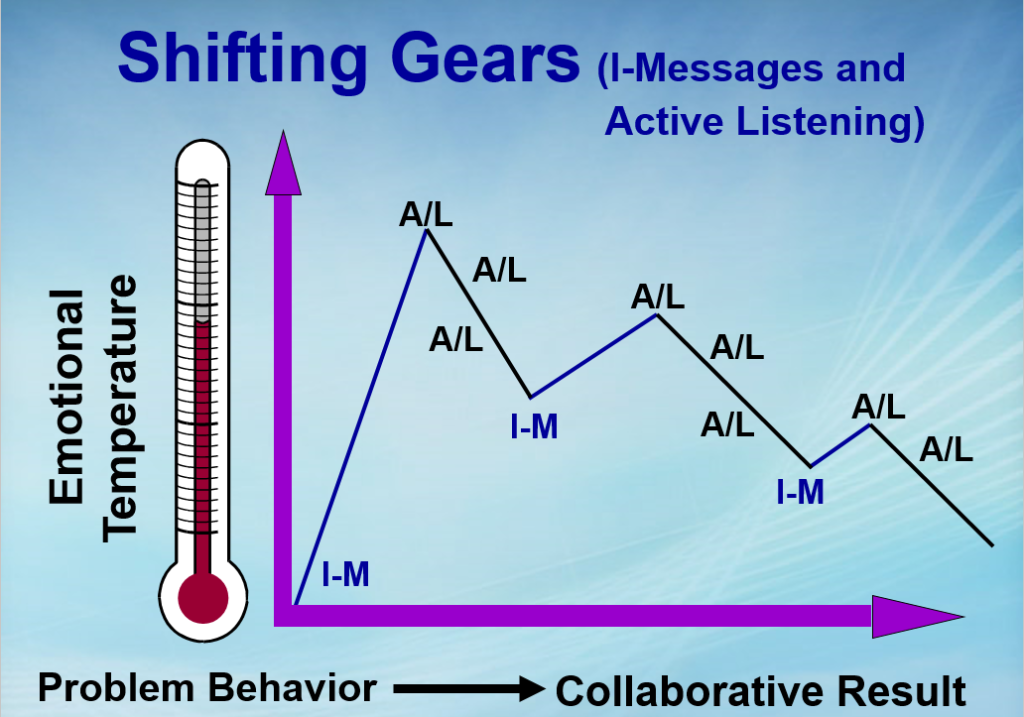
For reasons that aren’t clear, it seems that some people believe I-Messages should work every time, should without exception get the person confronted to change unacceptable behaviors. They misunderstand. A Confrontive I-Message isn’t a magic incantation; it’s simply the best way I know to inform someone that his or her behavior is causing a problem. It reduces the chance that the other person will misunderstand, or feel guilty, put-down, and resentful. But I-Messages never guarantee that the other person will immediately, willingly modify his or her behavior out of consideration for your needs. Human relationships are not that simple, nor humans that predictable.
Being told that what you’re doing is unacceptable can be upsetting. Even the world’s best Confrontive I-Message may raise the recipient’s hackles. Emotional temperature rises and there’s little likelihood of change.
When this happens, I have to make a difficult attitudinal shift from trying to help myself by confronting to helping the person being confronted. Suppose a friend borrows some of my tools to make some repairs. He promises to return them in two or three days, but a week passes, and I now need some of the tools. I decide to talk to my friend, so I say something like “You haven’t returned my tools and now I need some of them. I’m puzzled about what happened.”
He says, “I didn’t think it was so important that I had to rush right over with them but if you’re uptight about it I’ll to get them.”
Now what? The unacceptable behavior, not returning my tools, is in the third part of the Behavior Window—in the “I Own” area. The defensive response to my confrontation is in the top section in the “Other Owns” area. What happened is that my Confrontive I-Message gave my friend a problem. If I want help from him, I’ve got to be there to help him by listening empathically until his emotional temperature is reduced. I call it “shifting gears”. If I find it difficult to shift from confronting to listening, I have joined the vast majority of folks who have tried. Yet, as difficult as it is, it must be done. If I want help, I have to be willing to give help.
Let’s pick up the story. I see that my neighbor is upset by what I have said so, shifting to listening I might say “You think I’m being impatient, and you don’t like it.”
“Well” he says, “I was about to bring your stuff back but now I feel rushed, like you couldn’t wait.”
(Listening) “It feels like I’m pushing you to do what you were going to do anyway.”
“Right.”
(Confronting) “It wasn’t until I wanted to repair a broken pipe that I needed some of the things I lent you and that’s when I realized I was puzzled about why you hadn’t returned them.”
“Well, to be honest, there’s been a whole lot going on with me the last few days and I just plain forgot. I’m sorry if it’s been a problem for you and I’ll bring the tools over right away.”
(Listening) “I appreciate that. And I understand that you’ve been so busy that it just slipped your mind.”
“Right! I’ll get them and be over in ten minutes.”
“Thanks.”

Here’s a chart to show the flow of that conversation:
Shifting Gears is essential for creating a productive conversation, creating a collaborative outcome and for strengthening relationships.

